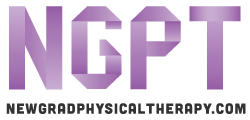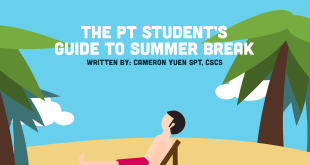When I graduated from PT school, I started practicing in an outpatient setting. Like many of my peers, my focus was orthopedics. This was familiar territory that I found both exciting and rewarding. But soon, I was required to receive training in Vestibular Rehabilitation Therapy (VRT). I was working in a tight knit hospital based outpatient setting which started getting referrals from in-house ENTs and audiologists. Even though orthopedics was my primary interest, I found myself treating vestibular patients frequently and surprisingly, successfully. While orthopedics remained challenging and competitive, vestibular rehabilitation became basic, yet gratifying.
I was trained in vestibular rehab 6 years ago and have never worked in an exclusive balance center (nor do I plan to), but I have always maintained a partial caseload of vestibular patients. It’s refreshing to take a break from orthopedics and manual therapy every now and then and my hands thank me for the much needed rest. It keeps my options open for the future and sometimes helps me tease out the nuances of gait abnormalities that may be caused by an underlying vestibular dysfunction.

5 reasons new grads should consider practicing vestibular rehab
1. Unique skill set
After 7 years of clinical practice, I am still surprised by a dearth of PTs trained in vestibular rehabilitation in outpatient settings.
Even if your practice is primarily orthopedic or neuro based, this is an easy addition to expand your referrals, as well as your client base.
This unique skill set will set your resume apart from piles of others. Although manual therapy certifications are “sexy”, they are much more common than vestibular ones. For companies not actively looking for a vestibular therapist, you can propose to build a new caseload and attract more referrals.
2. Professionally rewarding
Some of the most grateful patients in my years of practice have been patients with benign paroxysmal positional vertigo (BPPV). This very common condition can be significantly disabling to patients. Fortunately, it has an easy fix using a simple canalith repositioning maneuver. Despite the minimal amount of time required to treat these patients, which averages 5 minutes, the results are quite dramatic. Symptoms are often completely resolved in 1-2 sessions, leaving you as the patient’s “hero”. It can help you build your brand and fosters confidence as a new grad PT.
3. Modest training
As complicated as vestibular rehab looks and sounds, a one weekend training course is usually enough to start treating most vestibular cases. While many school curriculums prepare students to treat patients with vestibular disorders, training is usually not satisfactory. New grad PTs often do not feel comfortable dealing with these patients. Having a clinical rotation or internship in a clinic which offers vestibular rehabilitation can be of great help with this.
4. Geriatrics physical therapist
If you’re practicing in or are interested in geriatric physical therapy, then understanding vestibular rehabilitation is even more important to your clinical practice.
With a high prevalence of general vestibular degeneration in the geriatric population, assessing and treating this component of the balance system is imperative for successful outcomes of many balance programs.
5. Cost Effective
“All I need to treat a patient is a piece of foam and 10 square ft space.”
How often do you get to say that? How much easier is it for you to see a cash based patient when you don’t have to bring a table? There is no electrotherapy equipment, no exercise equipment and no need for hour long sessions. With your knowledge and expertise as the only true requirements to treat vestibular patients, it is probably the most cost, time and space effective sub-specialty of physical therapy.
If vestibular rehabilitation sounds interesting to you or if you’re considering taking a course or a job in this field, I recommend that you take the step toward owning this skill and making a difference in people’s lives.
 NewGradPhysicalTherapy.com The Largest Online Resource For New Grad Physical Therapists
NewGradPhysicalTherapy.com The Largest Online Resource For New Grad Physical Therapists







Hello, are there any specific vestibular rehab weekend courses you recommend? I am a new grad, and have always been interested in learning more about this.
Hi Myra,
In my opinion, Best certification to go for ( if you have time and resources) is from American Institute of Balance in Florida. They have a 3 days and a 5-6 days course, 5-6 days one is highly recommended. http://dizzy.com/affiliate_program.htm
5m
I attended a non certificate program taught by Jeff Walters a few yrs ago and he was great. This however is not a certification . https://www.medbridgeeducation.com/about/instructor/jeff-walter-pt-dpt-ncs
Finally, Advanced Vestibular Rehab course conducted by UPitt is very useful after you have attended a basic course. https://www.shrs.pitt.edu/vestibularcourse/
So If AIB course is not convenient, combination of above two is an excellent alternative.
Hope this helps
Nidhi Sharma,PT
Hey, Myra!
I think I was your lab assistant in ther-ex at University of St. Augustine! Great to see your name pop up 🙂 There is actually a really fantastic vestibular therapist right here in San Diego. Not sure if you’re still living here, but if you are, you should check out her courses. https://www.betterbalanceinlife.com/services/learn/ What I like about them is the content is immediately applicable in any setting, so you don’t have to be in a vestibular job to start applying to principles and techniques you learn. She also has very specialized courses, along with the general ones. I can connect you directly to Kim if you’d like to talk with her more. She does offer clinical mentorship, too, if you’re serious about pursuing the vestibular route as a new grad and haven’t had a chance to get your foot in the door.
Another thing that helped me a lot as a new grad was getting a subscription to physicaltherapy.com. Anytime I wanted to explore a new specialty or setting, I would just watch a course on the topic. You pay a flat rate of $99/year for unlimited continuing ed. I watched lots of women’s health and continuing ed courses on there before deciding to spring for paying for a full weekend course. It’s a good way to try out a subject without committing your whole cont ed budget to it if you’re not sure 🙂
Lastly, this link: http://vestibular.org/resources-professionals/build-your-practice has a lot of courses across the nation. That’s going to be the priciest route if you’re still in SD, as they all seem to require travel. I’m happy to chat more if you have more questions.
Hope this helps! Thanks for stopping by 🙂 Meredith
Oh my gosh! Hi Meredith! So funny to run into you here 🙂 Thank you for your reply. Super helpful information! I am actually in the process of looking for a job up in the Orange County area. I will keep Kim in mind for future reference if I ever end up down in San Diego. Her course sounds like something I would like to take in the near future. I will also look into getting a subscription to physicaltherapy.com.
Thank you again!
-Myra
PS. Awesome that you are co-founder of this website. Seriously such a great source for new grads.